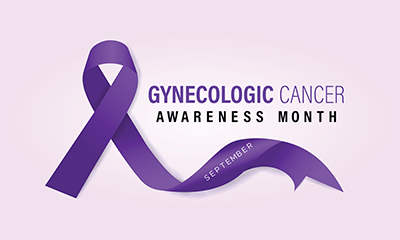
September is a significant month for women’s health as it marks Gynecologic Cancer Awareness Month. This observance is an important opportunity to raise awareness about the various types of gynecologic cancers, their risk factors, prevention strategies, early detection, and the importance of supporting those affected by these diseases. MCR Health is dedicated to promoting awareness and offering valuable insights to empower individuals to take charge of their health. In this blog post, we will explore the significance of Gynecologic Cancer Awareness Month and discuss ways to protect and support the women in our lives.
Understanding Gynecologic Cancers
Gynecologic cancers encompass several types of cancer that affect the female reproductive system, including the cervix, uterus, ovaries, fallopian tubes, vulva, and vagina. The most common gynecologic cancers include:
- Cervical Cancer: Often caused by human papillomavirus (HPV) infection, cervical cancer can be prevented with HPV vaccination and regular Pap tests.
- Uterine (Endometrial) Cancer: This cancer starts in the lining of the uterus and typically occurs after menopause. Early detection can improve the prognosis.
- Ovarian Cancer: Often called the “silent killer,” ovarian cancer is challenging to detect in its early stages. Recognizing symptoms like bloating, pelvic pain, and changes in bowel habits is crucial.
- Vulvar and Vaginal Cancers: These rare cancers are often linked to HPV infection or precancerous changes. Regular checkups can help detect abnormalities early.
Demographics Affected by Gynecologic Cancers
Understanding the demographics that are most affected by gynecologic cancers is crucial for targeted awareness and prevention efforts. Let’s delve into some key statistics:
1. Cervical Cancer:
Age Group: Cervical cancer is most commonly diagnosed in women between the ages of 35 and 44, with the average age of diagnosis being 50.
Racial Disparities: Hispanic and Black women have higher cervical cancer incidence rates than White women.
Socioeconomic Factors: Women from low-income backgrounds or with limited access to healthcare may face higher risks due to delayed screenings and vaccinations.
2. Uterine (Endometrial) Cancer:
Age Group: Uterine cancer primarily affects postmenopausal women, with the average age of diagnosis around 60.
Obesity: Obesity is a significant risk factor for uterine cancer, and the incidence is higher in women with excess body weight.
3. Ovarian Cancer:
Age Group: Ovarian cancer can affect women of all ages, but the majority of cases occur in women over 50.
Family History: Women with a family history of ovarian cancer or certain genetic mutations (such as BRCA1 and BRCA2) are at higher risk.
4. Vulvar and Vaginal Cancers:
Age Group: These cancers typically occur in older women, with the risk increasing with age.
HPV Infection: Infection with certain strains of HPV is a significant risk factor for vulvar and vaginal cancers.
Geographic Variations: Incidence rates of gynecologic cancers may vary by region, with some areas experiencing a higher prevalence due to differences in healthcare access and lifestyle factors.
It’s important to note that while these statistics provide insights into the demographics most affected by gynecologic cancers, anyone can be at risk. Regular screenings, vaccinations, and a healthy lifestyle are essential for all women, regardless of their demographic characteristics.
As we observe Gynecologic Cancer Awareness Month, let’s keep these demographics and risk factors in mind, and let’s work together to ensure that education and preventive measures are accessible to all individuals, regardless of their background or circumstances. By raising awareness and taking proactive steps, we can make progress in reducing the impact of gynecologic cancers on women’s lives.
Prevention and Early Detection
Prevention and early detection are vital in the fight against gynecologic cancers. Here are some key strategies:
- HPV Vaccination: Encourage girls and boys to receive the HPV vaccine, which protects against several types of HPV associated with cervical and other cancers.
- Regular Screenings: Women should undergo regular Pap tests and, if necessary, HPV testing to detect cervical cancer early
- Genetic Counseling: Women with a family history of gynecologic cancers may benefit from genetic counseling and testing to assess their risk.
- Know the Symptoms: Being aware of the common symptoms of gynecologic cancers, such as abnormal bleeding, pelvic pain, and changes in urinary habits, can aid early detection.
- Maintain a Healthy Lifestyle: Adopting a healthy diet, regular exercise, and avoiding smoking can reduce the risk of gynecologic cancers.
Support and Resources:
Dealing with a gynecologic cancer diagnosis can be overwhelming, not only for the patient but also for their loved ones. It’s essential to provide support and access to resources during this challenging time:
- Emotional Support: Offer a listening ear and emotional support to individuals diagnosed with gynecologic cancers. Encourage open communication about their feelings and concerns
- Join Support Groups: Consider joining or recommending support groups for gynecologic cancer patients and survivors, where individuals can share their experiences and coping strategies.
- Seek Professional Help: A cancer diagnosis can trigger anxiety and depression. Encourage individuals to seek help from mental health professionals when needed.
- Stay Informed: Knowledge is empowering. Stay informed about treatment options, clinical trials, and local resources to assist in making informed decisions.
Observing Gynecologic Cancer Awareness Month
Observing Gynecologic Cancer Awareness Month is not only about gaining knowledge but also taking action to protect your health and the health of the women in your life. Here are some ways you can actively participate in this important awareness campaign:
- Spread Awareness: Share information about gynecologic cancers on your social media platforms, using hashtags like #GCAM or #GynecologicCancerAwarenessMonth. Educate your friends and family by sharing this blog post or other reliable resources
- Host Awareness Events: Organize or participate in events, webinars, or workshops that focus on gynecologic cancer prevention, early detection, and support for survivors. These events can be a great way to engage your community in meaningful discussions.
- Wear Purple: Purple is the official color of gynecologic cancer awareness. Wearing purple ribbons, clothing, or accessories throughout September can help raise awareness and start conversations about these cancers.
- Fundraise: Consider hosting a fundraiser or donating to organizations that support gynecologic cancer research, advocacy, and patient assistance programs. Your contribution can make a significant difference in the fight against these cancers.
Schedule Your Next Exam
One of the most crucial steps you can take during Gynecologic Cancer Awareness Month is to prioritize your health. If you are due for a gynecologic exam or haven’t had one recently, now is the perfect time to schedule it. Regular check-ups can help detect any abnormalities or early signs of gynecologic cancers. Don’t delay – make that appointment today!
MCR Health’s Commitment
Gynecologic Cancer Awareness Month serves as a reminder of the importance of education, prevention, early detection, and support for individuals affected by these cancers. By raising awareness and taking proactive steps to reduce risks, we can make significant strides in the fight against gynecologic cancers. At MCR Health, we are committed to promoting women’s health and offering comprehensive care to support our patients in every step of their journey. Let’s unite to raise awareness and work towards a future where gynecologic cancers are better understood, preventable, and manageable.

